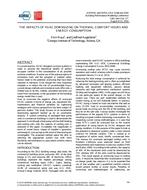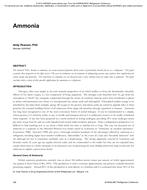One of the most frequently asked and highly debated questions in the Datacom arena today is “what is the right temperature for my Datacom environmentâ€� The answer to this question is not simply defined without the appropriate context, but with that context or perspective the question is more clearly answered.
ASHRAE Technical Committee (TC) 9.9 “Mission Critical Facilities, Technology Spaces and Electronic Equipment†has issued a 2nd Edition to Thermal Guidelines for Datacom Centers, which includes updated guidance on the recommended and allowable environmental (temperature and humidity) envelopes for the entering air conditions to electronic hardware. The expanded recommended temperature range is 64.4°F to 80.6°F (18 C to 27 C). The “recommended” range is a statement on reliability and represents a consensus of the major original equipment manufacturers (OEM’s) for electronic equipment. The “allowable” range is much broader and aligns with most manufacturers data sheets. This paper looks at what the right temperature is from the context of the OEM, the Architect and Engineering (A&E) firm designing the Datacom Center, the Infrastructure equipment provider, and finally the Datacom owner’s viewpoint. Each has a unique perspective on the issue and often times different end objectives.
As mentioned, the environmental envelope includes both temperature and humidity. Both are important, but we have limited the scope of this paper to the temperature specifics to keep it manageable.
Before the right “temperature†is defined the right “location†needs to be understood. There are various points in the Datacom Center where temperature is typically measured and/or controlled. The paper reviews why the electronic equipment inlet is the critical or “right†location. The impact of controlling temperatures at the other locations is also explored.
The paper also explores the temperature question in the context of the many other parameters involved as well. Is this a new data center, a retrofit, or simply an operational change in the search of reduced operating costs? Does the area include tape storage media? Is all the electronic equipment front to back airflow? Is there an economizer in the cooling system? What is the current cooling architecture; hot aisle-cold aisle? Does it include airflow segregation? How well managed is the airflow and what variation of temperatures exist in the supply airflow at the inlet to the electronic equipment?
With these questions reviewed, the paper looks at the energy efficiency gains possible across a range of temperatures, concluding that the “right†temperature is truly case-by-case specific.
Citation: ASHRAE Conference Papers, 2010, vol. 116, pt. 2, Albuquerque, NM
Product Details
- Published:
- 2010
- Number of Pages:
- 13
- File Size:
- 1 file , 330 KB
- Product Code(s):
- D-AB-10-C021


